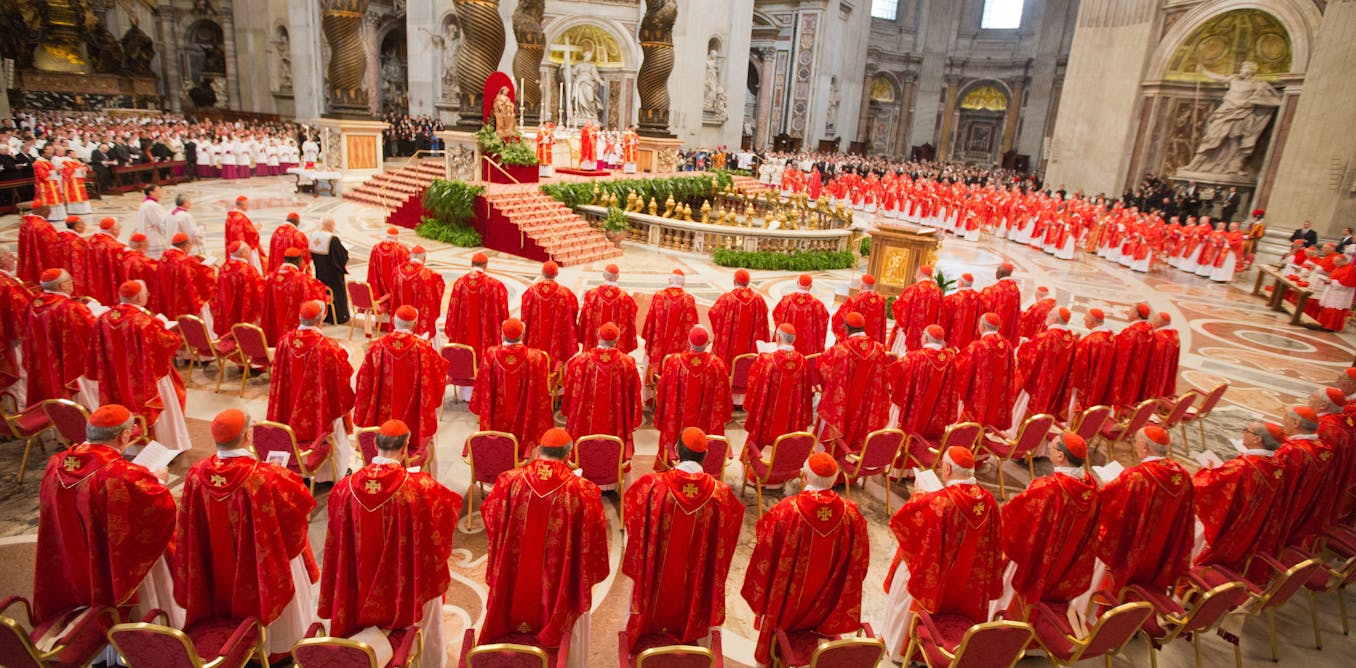The Markets as Master

In 1981, French voters elected Socialist Party leader François Mitterrand as president and followed that one month later by electing a parliament controlled by a coalition of Socialist and Communist Party members. It was France’s first genuinely left government since Léon Blum presided over another Socialist-Communist parliamentary majority in 1936, and it came complete with a platform that included the nationalization of many industries. Capital was displeased. The value of the franc nose-dived on currency markets, and Mitterrand was compelled to officially devalue it. Foreign investment in the country dried up, and major domestic investment also slowed. Within a little more than a year, Mitterrand was compelled to relegate his platform to history’s dustbin. He’d been defeated by the markets. Can’t happen here, right? The dollar—the world’s reserve currency since the end of World War II—ain’t nobody’s franc. America has been seen as the world’s safest repository of funds for even longer than that. None of the policies enacted under Democratic presidents beginning with Franklin Roosevelt (progressive taxes, worker rights, environmental protection, Social Security, Medicare, Obamacare) that the right has always claimed eroded American capitalism actually retarded the flow of global capital into American enterprises and the American dollar. After decades of deregulation, the financial panic of 2008 did freeze investments for a time, but even then, it was our Federal Reserve that had the resources and credibility to bail out not only domestic banks, but the national banks of other nations as well. And so, after a few years, the inflow of global capital continued to increase, and at no time, even in the immediate aftermath of 2008, were other nations’ currencies considered safer than ours. The markets looked at America and, at least compared to anyplace else, liked what they saw. That, as you doubtless know, was then. Donald Trump returned to power this January with an agenda as ambitious as Mitterrand’s in 1981, though it bore no substantive resemblance to the French president’s. It centered on personal retribution; on decimating the largely anti-Trumpian “new class” employed by government, universities, NGOs, law firms, and the media; on returning American culture, industries, demographics, and demographic hierarchies to his image of the (largely immigrant-free) 1950s, if not the 1890s; on extending his dominion over the legislative and judicial branches of government despite the Constitution’s explicit prohibitions of such actions; on employing police-state tactics to achieve those domestic ends and selectively cozying up to other nations that are full-fledged police states; and on winning zero-sum games with as many other heads of government as possible by sundering alliances and imposing tariffs on their nations’ products. Congressional Republicans had the power to impede a good deal of this agenda, but had no desire to do so. Democrats at the national level had no statutory power to stop Trump, though Democratic states and cities could partially resist, though not reverse, his policies. The courts thus far have ordered Trump to suspend or reverse many of his policies, orders that Trump has selectively ignored or obeyed, in all cases provisionally. Protesters have demonstrated in rising numbers, with no expectation, however, that they could by themselves get Trump to change course. The polls have showed Trump’s approval ratings in decline. But politics and law, broadly speaking, haven’t yet sufficed to turn Trump around. Only the markets appear to have the power to compel Trump into a series of 180-degree pirouettes. A significant share of the planet’s advanced economies are either social democratic or nominally communist, but there’s nothing remotely social or regulated about the global economy, at least since the Bretton Woods accords withered away during the 1970s. Domestic investment ebbs and flows freely as well. And those markets, both global and domestic, have done far more to impede Trump than any political actors have. This, apparently, is what it means to live in a capitalist world. Were Trump’s a normal administration, or even just an administration like his first, it might have put some brakes on Trump’s economic follies before the fact, provided him with more counselors who’d have told him about the folly of imposing tariffs on the whole wide world, including our closest allies. Instead, he surrounded himself with sycophants from whom he never heard a discouraging word, of whom some, like Stephen Miller and Peter Navarro, combined their sycophancy with their own even more extreme versions of Trump’s rage-filled beliefs. My colleague Bob Kuttner has referred to Treasury Secretary Scott Bessent as the “one grown-up” in Trump’s entourage, and it’s been Bessent above all who has alerted Trump to such unpleasantries as the disinvestments in Treasury bonds and the dollar, and the declines in stock prices that have followed the president’s tariff salvos and attacks on Fed chief Jerome Powell. Bessent stands out in Trump’s cabinet for being the kind of person whom presidents usually appoint to high positions. He brings with him a successful career at the apex of the mega-investor world—a normal résumé for a Treasury secretary. But Bessent’s clout—his countervailing power to Trumponomics, as it were—is that he’s the emissary from the markets, the only gods in Trumpland with power exceeding Trump’s. Which is to say, Bessent can deliver messages that Trump must heed only when he’s backed up by dire market conditions and prospects. If Trump’s tariffs weren’t already freezing some supply chains and auguring a flight from Treasurys, Bessent wouldn’t have the kind of Oval Office access he currently enjoys. To be sure, he’s not the only conduit the market has to the president: A recent meeting between Trump and the CEOs of Walmart and Target made clear to him that their shelves would be either bare or sagging under the weight of overpriced goods if his tariffs went through. Why it required this meeting for Trump to understand that their everyday low prices depend on everyday imports from China and other lower-wage countries is, to put it gently, mysterious. A team of sycophants also seems to have exposed Elon Musk to the censure of the markets. Last week, Tesla reported a drop in profits of 71 percent. One might think that someone in his entourage would have cautioned him that his adventures in Trumpland, blindly slashing public services and scientific research, supporting a series of far-right pols domestically and neo-Nazi parties abroad, would likely prove disastrous to Tesla sales, disproportionately dependent as they are on eco-conscious consumers. But Tesla’s board of directors (which has only eight members, including Elon and his brother Kimbal) provided no visible or audible impediments to Musk even as he daily competed with Trump to see which of them could do more damage to their institutional brands (Tesla and the United States of America, respectively). It required the markets—Tesla’s cratering sales, profits, and share value—to rein him in, as it required the markets to rein in Trump. Indeed, Tesla’s rally last week to its highest stock price in a month was almost entirely predicated on Musk proclaiming that he would leave government and return to manage the company. That’s not to say politics is weightless in all this. Musk’s power was clearly dinged by the defeat of his candidate for the Wisconsin Supreme Court, which enabled his elected Republican beneficiaries to mutter more loudly about his growing status as an electoral albatross. The rallies that Democratic electeds are holding in Republican states and districts, and the popular demonstrations now coming with increased frequency and size, all point to a massive mobilization of anti-Trump forces in the run-up to the 2026 midterm elections. Politics will have its day, but the markets can be, and have been, quicker. That the markets can provide a forceful and timely check on wannabe autocrats like Trump and Musk may provide some comfort; that they can provide more of a forceful and timely check on them than democratic norms and the body politic is not comforting at all. Given the outcome of the 2024 congressional elections, a lot of the fault belongs to congressional Republicans, and, I suppose, to the far-right media that have splattered the Republican base on which those members of Congress depend with counterfactual sewage that they pass off as news. All that said, it’s Trump—not FDR, not LBJ, not Obama or even Joe Biden—who has prompted the kind of capital flight associated with the likes of Mitterrand. That doesn’t mean Democrats should now worship at capital’s altar; far from it. It means, rather, that the markets won’t blanch if the Democrats resume promoting a more worker-friendly and, yes, regulated economy, just as they didn’t blanch when the Democrats did it (if too infrequently) before. It’s when regulations go by the wayside, and when economic policy becomes a zero-sum game à la Trump, that the markets buckle and crash.



















![The flamingo may replace the mosquito as Florida's official state bird [Florida]](https://usrimg-full.fark.net/c/cy/fark_cyzw8arRY5WkRhipmL9S-Jh32WY.jpg?AWSAccessKeyId=JO3ELGV4BGLFW7Y3EZXN&Expires=1746417600&Signature=khIsQ3KFPMxtl9YPkx7WClCe%2FU4%3D)